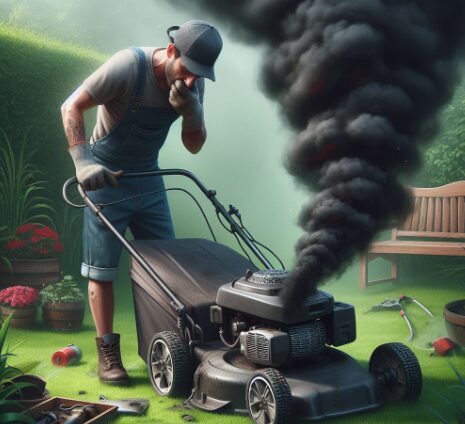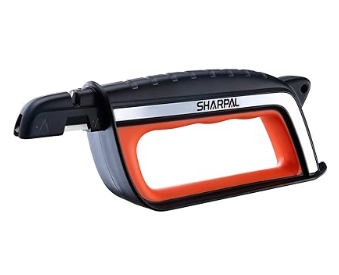Do you encounter regular lawnmower problems? If so, we are going to start with a quick overview of the hiccups you might encounter with your lawn mower. Common problems range from start-up failures to less-than-perfect cuts. This isn't just about knowledge; it's also about safety. Before you poke around your machine, always ensure it's off and the spark plug is disconnected.
View also: Our Best Lawnmower Lists here
Maintenance
Regular maintenance is crucial. It can save you from a headache later on by preventing issues before they occur. I'll walk you through some proactive steps that include cleaning, replacing, and general upkeep. Prepare to become well-acquainted with your mower's manual—it's going to be your troubleshooting bible.
Paying Attention
Now, let's get down to brass tacks. Diagnosing your lawn mower involves listening for strange noises, noticing unusual movements, and paying attention to the quality of the cut. These symptoms guide you towards the issue at hand. Whether it's a sputtering engine or a blade that just won't spin, identifying the problem is your first step to getting back to a beautiful lawn.
View also: Our Robotic Mower Reviews here
Practical Fixes for the Most Frequent Problems
So, your lawn mower is acting up, and you're ready to tackle the problem head-on. Don't worry too much about it; most issues you'll encounter are manageable with a bit of know-how. I'm going to walk you through some practical fixes that will have your mower running smoothly in no time. Check out the video demo below…
Starting
Starting troubles are a common headache. If your mower won't start, there's a good chance the spark plug or battery might be to blame. Check for a fouled spark plug first by removing it and looking for build-up. If it looks dirty, give it a good clean or simply replace it - they're not expensive. As for the battery, ensure it's properly charged and the terminals are clean and free from corrosion.

Build ups
Next, let's talk clogs. Grass build up can bog down your mower, affecting the discharge of clippings and ultimately clogging the deck. After disconnecting the spark plug wire for safety, clear any grass clumps from under the deck. A hose can help flush out the stubborn bits. Remember, dry grass is easier to remove, so consider doing this after the lawn has had time to dry.
View also: Our Corded Lawnmower Reviews here
Drive Problems
Ever pushed a mower that felt like it was dragging an anchor? Wheel and drive problems can be frustrating but are often easy to fix. Check the wheels for damage and ensure they spin freely. For drive issues, the drive belt might be worn or has slipped off. Consult your mower's manual on how to access and inspect the belt. A replacement is straightforward if needed.
Engine
A healthy engine is the heart of your lawn mower, so let's put a stethoscope to it. The air filter can become clogged, suffocating the engine; it may need a good cleaning or a replacement. Don't forget the oil - a quick check of the level and a change if it's been a while could save your engine. And for the fuel system, old gas is a common culprit for engine troubles. Make sure to use fresh fuel and clean the carburettor if you suspect it's clogged.
View also: Our Cordless Lawnmower Reviews here
Blade Sharpening
One last tip: dull blades make for hard work. You want clean cuts, not ragged tears. Inspect your blades; if they're dull or damaged, sharpening them can be a DIY task, or you might just want to replace them. Trust me, your lawn will thank you with a cleaner, healthier look.
Master these solutions, and you'll be prepared to face most problems head-on. However, what if you encounter something that's just not within your wheelhouse or the mower still doesn't hum to life? That's where my next advice comes in, recognizing when it's time to call the pros.

When to Call the Professionals: Recognizing Beyond-DIY Repairs
I'm going to level with you: there are times when googling a quick fix just doesn't cut it. Recognizing when you're out of your depth is critical to prevent causing further damage to your lawn mower. Complex issues like internal engine repairs, electrical faults, or persistent problems that defy all your repair attempts are clear signs it's time to hand over the reins to a pro.
View also: Our Hover Lawnmower Reviews here
When to Seek Help
Do-it-yourself repairs can be satisfying, but they aren't without risks, especially when you're dealing with intricate machinery. Sure, you might save a few bucks initially, but an incorrect DIY can lead to costlier repairs down the line. To avoid this, it's essential to know when to seek help.

Repair Service
If you're at this crossroads, choose something that resonates with you: find a reliable, experienced lawn mower repair service. How? Look for service providers with great reviews, ask for recommendations from friends or local gardening communities, and check for certifications that showcase their expertise.
When you decide to go professional, here's what you can expect: a thorough inspection, an explanation of the issue, a detailed quotation for the repair, and advice on avoiding future problems. Professionals will not only fix the current issue but will also tune-up your machine to ensure it runs smoothly for seasons to come.
Maintenance Schedule
And remember, after your lawn mower is back in prime condition, it’s important to stick to a maintenance schedule. This includes regular cleaning, blade sharpening, and timely service checks. By doing so, you'll keep your mower in top shape and reduce the likelihood of facing these problems again.
Gardener Feedback
What are the most common problems you come across when using lawnmowers and how do you fix them? If possible, please let us all know by leaving your opinions and ideas in the comment box section provided below – so that others can learn also.








Recent Comments